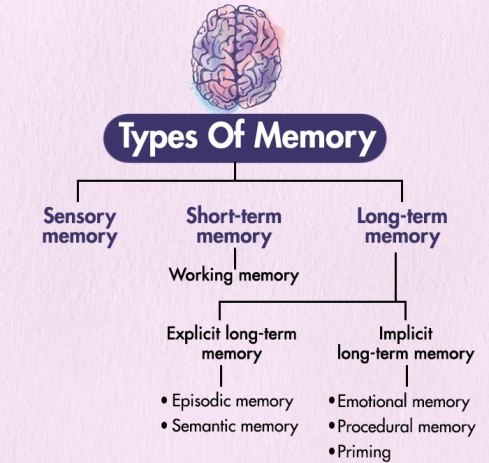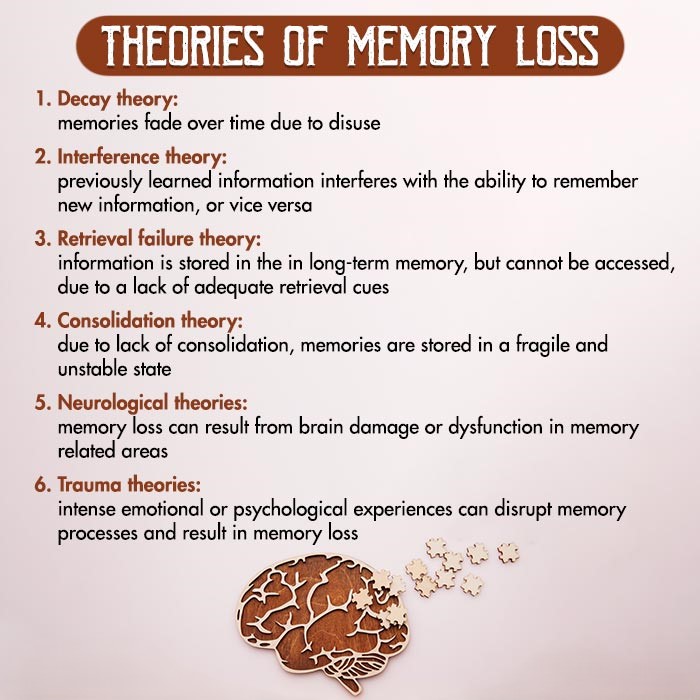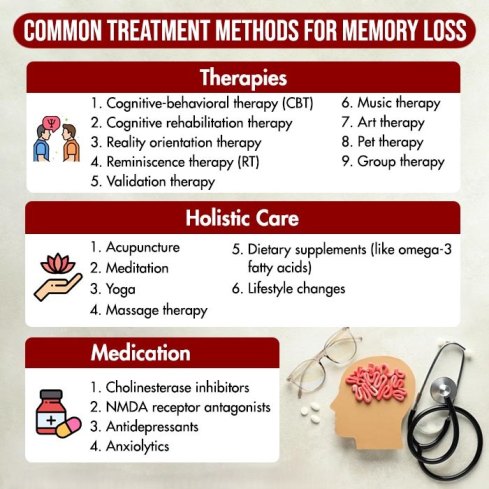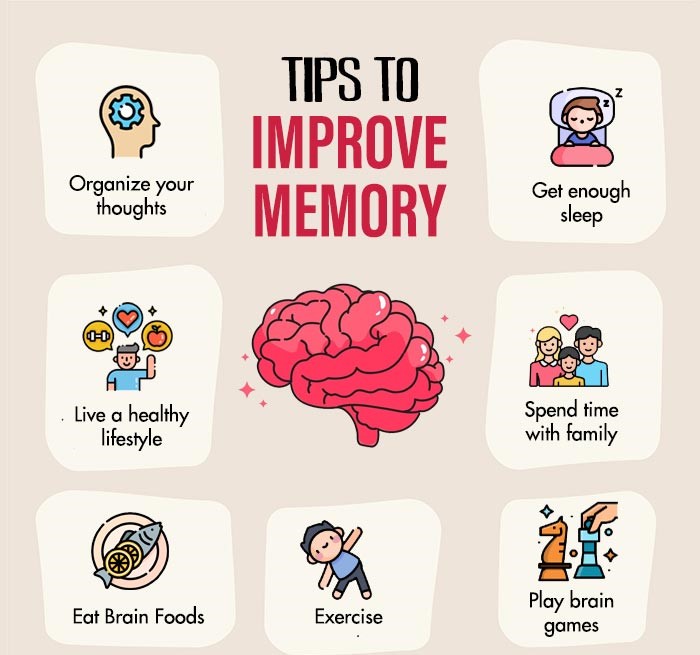Memory is one of the most crucial functions of the human brain. From the retention of important information to the recollection of past experiences, memory plays an essential role in shaping our identities and guiding our decision-making processes. The duration of memories varies widely, depending on their types, emotional significance, and the process of formation.
What Is Memory?
Memory is a complex cognitive process 1 Zlotnik, G., & Vansintjan, A. (2019). Memory: An Extended Definition. Frontiers in psychology, 10, 2523. https://doi.org/10.3389/fpsyg.2019.02523 that involves the acquisition, transformation, storage, retention, and retrieval of information. It allows us to learn from our past experiences and use that knowledge to make better decisions and take effective actions in the future.
The process of memory begins with the acquisition of information from our environment and experiences. This information is transformed into a form that can be stored in our memory system. Once stored, the information is retained for varying lengths of time and can be retrieved when needed.
The ability to improve memory can have numerous benefits in our personal and professional lives. With better memorization capacity, we can learn new skills and information 2 Brem, A. K., Ran, K., & Pascual-Leone, A. (2013). Learning and memory. Handbook of clinical neurology, 116, 693–737. https://doi.org/10.1016/B978-0-444-53497-2.00055-3 more efficiently, recall important details from past experiences, and make more informed decisions.
Therefore, it is crucial for us to understand the nature of our memory (like how memories are formed, ways to enhance it, etc.) so that we can have significant benefits for our cognitive abilities and overall well-being.
How Does Memory Work?
Memory captures information from external and internal stimuli. Memory formation also involves a dual process where routine, unconscious thoughts interconnect with problem-based, conscious thoughts, which activate different neural systems. However, scientists still do not fully understand how memories are made or how the brain stores, organizes, searches for, and retrieves information.
However, every memory process begins with three essential processes 3 Bisaz, R., Travaglia, A., & Alberini, C. M. (2014). The neurobiological bases of memory formation: from physiological conditions to psychopathology. Psychopathology, 47(6), 347–356. https://doi.org/10.1159/000363702 : encoding, storing, and retrieval. The encoding of information involves how we take in, process, understand, and modify memory to better store it.
Once encoded, the information is stored in our brain as short-term memory and can be later stored as long-term memory if necessary. The storing process refers to where, how, how long, and how much information is stored in our brain. Retrieval is accessing the encoded information stored in our brain.

Types Of Memory
The more common types 4 Camina, E., & Güell, F. (2017). The Neuroanatomical, Neurophysiological and Psychological Basis of Memory: Current Models and Their Origins. Frontiers in pharmacology, 8, 438. https://doi.org/10.3389/fphar.2017.00438 of memory include:
1. Sensory memory
Sensory memory refers to the brief storage of sensory, visual, and auditory information.
2. Short-term memory
Short-term memory is a type of memory that has a limited capacity and can hold information for a short period, usually around thirty seconds. An example of this would be remembering the name of a new acquaintance.
A subtype of short-term memory, working memory allows us to manipulate its information for long-term use. This type of memory is used when reading a book or calculating grocery bills.
3. Long-term memory
Long-term memory refers to the relatively permanent storage of information. This type of memory has two subtypes:
I. Explicit memory
Explicit memory is consciously and deliberately recalled memory. It has two subtypes, namely, episodic memory and semantic memory. Episodic memory refers to specific events or experiences, including when and where they occurred. On the other hand, semantic memory refers to the memory of facts and general knowledge, not tied to specific events.
II. Implicit memory
Implicit memory is not consciously recalled and has three subtypes, namely, procedural memory, emotional memory, and priming. Procedural memory refers to the memory of how to perform skills or actions, such as playing an instrument or riding a bike.
Emotional memory refers to memories that evoke emotional experiences. Finally, priming is positively relating to other stimuli when engaging in an activity.

Theories Of Memory
Studies 5 Park, D. C., & Festini, S. B. (2017). Theories of Memory and Aging: A Look at the Past and a Glimpse of the Future. The journals of gerontology. Series B, Psychological sciences and social sciences, 72(1), 82–90. https://doi.org/10.1093/geronb/gbw066 categorize the theories of memory into three types:
1. Information-processing theory
The information-processing theory 6 van der Heijden, A. H., & Stebbins, S. (1990). The information-processing approach. Psychological research, 52(2-3), 197–206. https://doi.org/10.1007/BF00877528 suggests that memory operates like a computer, with information being processed through different stages of memory. The three stages of memory are sensory memory, short-term memory, and long-term memory. Each stage has different capacities and durations.
2. Level of processing theory
The level of processing theory 7 Craik, F. I. M., & Lockhart, R. S. (1972). Levels of processing: A framework for memory research. Journal of Verbal Learning and Verbal Behavior, 11(6), 671–684. https://doi.org/10.1016/s0022-5371(72)80001-x suggests that memory is influenced by how deeply information is processed. It claims that information that is processed more deeply, such as through semantic or meaningful processing, is more likely to be remembered than information processed at a more shallow level, such as through visual or structural processing.
3. Multi-store model
The multi-store model of memory 8 Jonides, J., Lewis, R. L., Nee, D. E., Lustig, C. A., Berman, M. G., & Moore, K. S. (2008). The mind and brain of short-term memory. Annual review of psychology, 59, 193–224. https://doi.org/10.1146/annurev.psych.59.103006.093615 describes the compartmentalization of and flow between three permanent storage systems of memory: the sensory register (SR), short-term memory (STM) and long-term memory (LTM). This information passes in a linear way—with an input, process and output.

What Causes Memory Loss?
Harmless short-term memory loss or occasional forgetfulness 9 Deak, F., Kapoor, N., Prodan, C., & Hershey, L. A. (2016). Memory loss: Five new things. Neurology. Clinical practice, 6(6), 523–529. https://doi.org/10.1212/CPJ.0000000000000314 is often a natural part of the memory process. Our brain is constantly processing a large amount of information, and forgetting helps us filter out unnecessary or irrelevant information in order to focus on what is important. It can also occur due to natural decay, interference from other information, or when a memory is not encoded or stored properly.
However, frequent and persistent memory loss or forgetfulness is not natural and can be influenced by risk factors 10 Deak, F., Kapoor, N., Prodan, C., & Hershey, L. A. (2016). Memory loss: Five new things. Neurology. Clinical practice, 6(6), 523–529. https://doi.org/10.1212/CPJ.0000000000000314 such as:
- Genetic disorders and birth defects [Read more]
- Aging [Read more]
- Hormonal imbalances
- Bacterial and viral infections, such as coronavirus, HIV, etc.
- Medical conditions, such as dementia, cancer, stroke, and head injury
- Mental health conditions like depression, substance use disorder, ADHD, etc.
- Heavy use of medication, such as antidepressants, sedatives, hypnotics, or antiseizure drugs
- Stress [Read more]
- Sleep deprivation
- Nutritional deficiencies
Read More About Dementia Here
Memory And Mental Health
Memory plays a crucial role in our psychological well-being, and its impairment can have a significant impact on our mental health 11 Yuan, S., Zhang, W., Lü, W., Yu, W., Zhong, F., Xiong, L., Wan, T., Hu, C., Yang, W., Chen, C., Luo, D., Tan, B., Huang, C., Yu, W., & Lü, Y. (2021). The psychological impact on patients with memory disorders and their caregivers during COVID-19. Aging clinical and experimental research, 33(8), 2317–2325. https://doi.org/10.1007/s40520-021-01911-1 . It is believed that a good and active human memory processing is the most inevitable marker of mental health. In contrast, poor memory processing is both a result and a symptom of poor mental health conditions.
Unpleasant memories of negative experiences (like childhood abuse, bullying, social rejection, domestic violence, etc.) cause a lot of pain and psychosocial problems, such as mood disorders and anxiety issues. Impaired memory is also a symptom of underlying neurodegenerative disorders 12 Dugger, B. N., & Dickson, D. W. (2017). Pathology of Neurodegenerative Diseases. Cold Spring Harbor perspectives in biology, 9(7), a028035. https://doi.org/10.1101/cshperspect.a028035 or memory dysfunction 13 Matthews B. R. (2015). Memory dysfunction. Continuum (Minneapolis, Minn.), 21(3 Behavioral Neurology and Neuropsychiatry), 613–626. https://doi.org/10.1212/01.CON.0000466656.59413.29 like aphasia, dementia, and so forth.
Negative circumstances force people to embrace unhealthy coping habits, like smoking, drinking, and drug use, which can further affect their memory. Whenever one’s memory is weakened or diseased 14 Pittenger C. (2013). Disorders of memory and plasticity in psychiatric disease. Dialogues in clinical neuroscience, 15(4), 455–463. https://doi.org/10.31887/DCNS.2013.15.4/cpittenger , their identity, self-esteem, confidence, and social relationships also suffer greatly.
Memory disorders
Memory disorders refer to a wide range of neurodegenerative and mental health conditions that affect a person’s ability to remember and recall information. These can be caused by aging, injury, disease, or psychological trauma. Some common 15 Chiu M. J. (2007). Acta neurologica Taiwanica, 16(4), 242–250. memory disorders include:
- Alzheimer’s disease
- Amnesia
- Traumatic brain injury (TBI)
- Parkinson’s disease
- Huntington’s disease
- Korsakoff’s syndrome
- Vascular dementia
Read More About Alzheimer’s Disease Here
Treatment For Memory Loss
The treatment for memory loss varies depending on the underlying cause and severity of the memory loss. However, early diagnosis and intervention can help manage symptoms and improve the quality of life.
Consider the following steps 16 Andrade, C., & Radhakrishnan, R. (2009). The prevention and treatment of cognitive decline and dementia: An overview of recent research on experimental treatments. Indian journal of psychiatry, 51(1), 12–25. https://doi.org/10.4103/0019-5545.44900 to avail or help with medical aid while coping with memory loss:
- Get yourself or your loved one tested. Try using common memory assessments available in clinics (for both adults and children).
- Seek medical help as memory loss often accompanies mental and physical health disorders.
- Early diagnosis and treatment can prevent further memory decline.
- Seek or encourage to seek psychotherapies, cognitive therapies, and memory support interventions 17 Franzen, M. D., & Haut, M. W. (1991). The psychological treatment of memory impairment: a review of empirical studies. Neuropsychology review, 2(1), 29–63. https://doi.org/10.1007/BF01108846 .
- Reassure yourself frequently or support your loved one during the memory loss treatment and recovery process.
- Remember or try to remind your loved one that although the healing process can be slow, therapy and medication—along with care and support—can help treat serious memory problems.

How To Improve Memory
Consider the following tips 18 Cotelli, M., Manenti, R., Zanetti, O., & Miniussi, C. (2012). Non-pharmacological intervention for memory decline. Frontiers in human neuroscience, 6, 46. https://doi.org/10.3389/fnhum.2012.00046 to improve memory:
- Exercise regularly.
- Get a good quantity and quality of sleep.
- Manage stress with effective stress management techniques like yoga, meditation, etc.
- Maintain a healthy diet, including foods rich in antioxidants, healthy fats, and vitamins.
- Engage in mentally stimulating activities, such as puzzles, reading, or learning a new skill.
- Practice good organizational skills, such as using a planner or to-do list, to help remember important tasks and information.
- Repeat information out loud or write it down to reinforce memory.
- Use mnemonic devices 19 Dresler, M., Shirer, W. R., Konrad, B. N., Müller, N. C. J., Wagner, I. C., Fernández, G., Czisch, M., & Greicius, M. D. (2017). Mnemonic Training Reshapes Brain Networks to Support Superior Memory. Neuron, 93(5), 1227–1235.e6. https://doi.org/10.1016/j.neuron.2017.02.003 , such as acronyms or rhymes, to help remember information.
- Avoid multitasking, as it can decrease focus and impair memory.
- Stay socially active and maintain healthy social connections, as positive social engagement can enhance cognitive function and improve memory capacity.

Takeaway
Memory is a complex and fascinating cognitive ability that plays a vital role in our daily lives. From retaining simple information to remembering complex experiences, memory helps shape our identities and impacts our interactions with the world around us.
While memory loss can be a challenging condition, early diagnosis, treatment, and lifestyle changes can help improve memory function. By understanding how memory works and implementing strategies to enhance it, we can optimize our cognitive abilities and lead fulfilling lives.
At A Glance
- Memory is the brain’s capacity to encode, store and retrieve information.
- Understanding the nature of memory can enhance our ability to learn from the past and make better choices.
- The process of memory involves both physiological and psychological mechanisms.
- Memory is an imperfect process that can result in forgetting.
- Good memory is linked to good mental health and vice versa.
- Strategies like a balanced diet, sufficient sleep, relaxation exercise, brain exercises, and other proven methods can enhance memory capacity.
- For chronic memory loss associated with conditions such as dementia, amnesia treatment should be sought.
Frequently Answered Questions (FAQs)
1. Can depression cause memory loss?
Yes, depression can cause memory loss. As it causes attention deficiency, which may lead to people not remembering details about events or creating long-term memories. Depressed people mostly suffer from poor short-term memory and prospective memory.
2. What causes memory loss?
The causes of memory loss can be physical injuries to the brain, mental health disorders (like stress, anxiety, and depression), addictions (like alcoholism and substance abuse), infections, hormonal imbalances, and memory disorders like dementia and Alzheimer’s disease.
3. What diseases affect your memory?
Both physical and mental health disorders affect memory. Physical diseases caused by viral and bacterial infections, hormonal imbalances, brain injury, and poor nutrition affect memory performance. Mental health disorders like stress disorders, anxiety disorders, depression, Alzheimer’s disease, Parkinson’s disease, etc. negatively affect memory functioning.
4. How long do memories last?
The duration of memories varies, depending on how they are encoded, stored, and retrieved by the brain. Short-term memories are stored in the brain for a few seconds or minutes, while long-term memories can last from days to years or even a lifetime. However, memories tend to fade over time due to forgetting or interference from new information.















